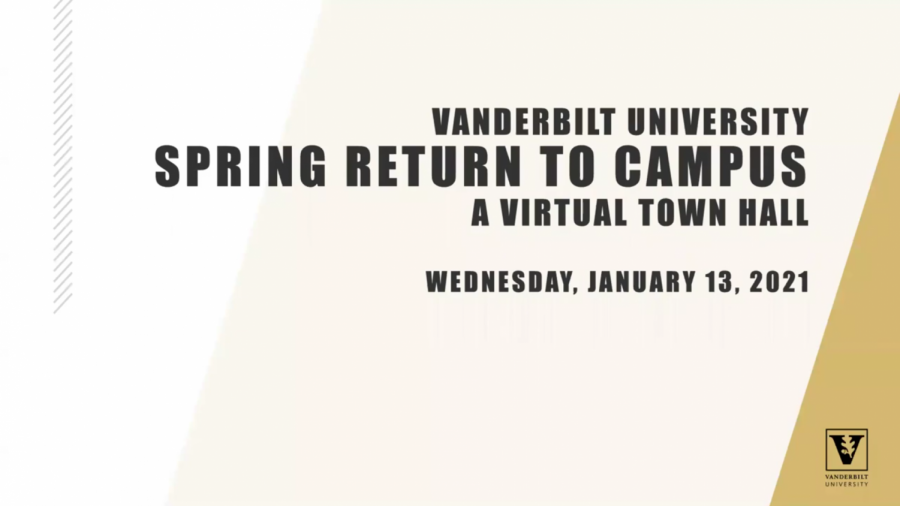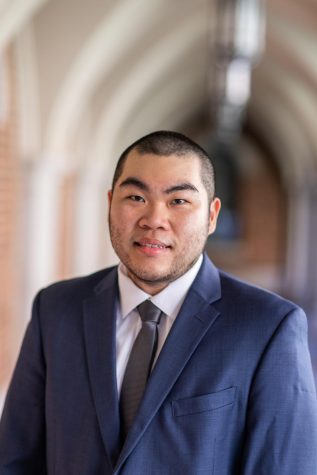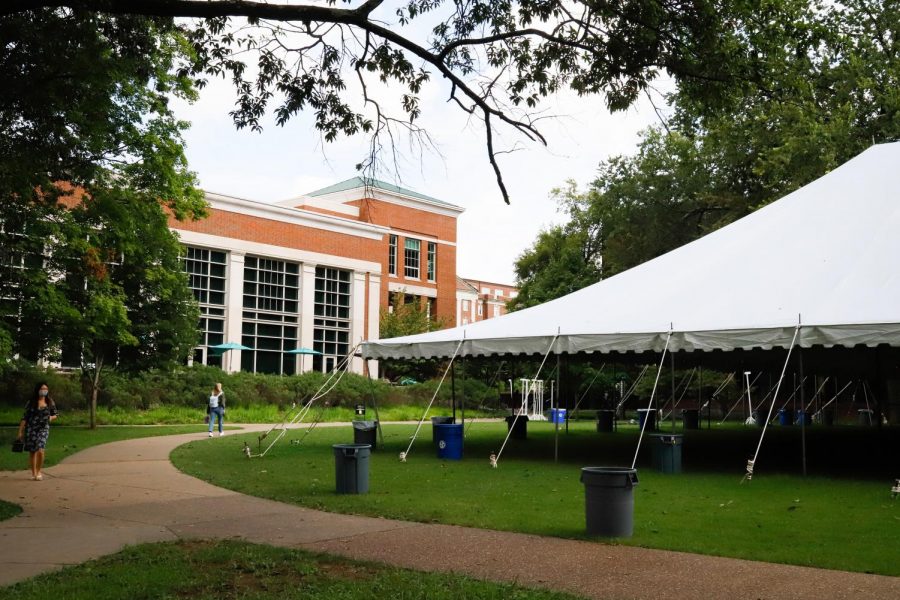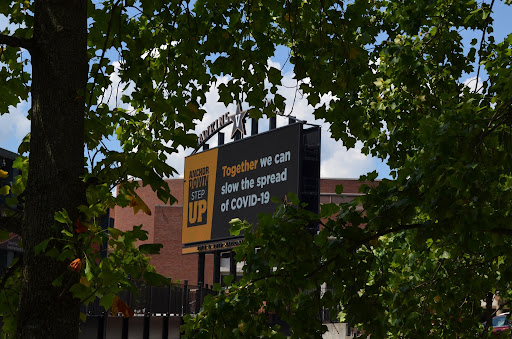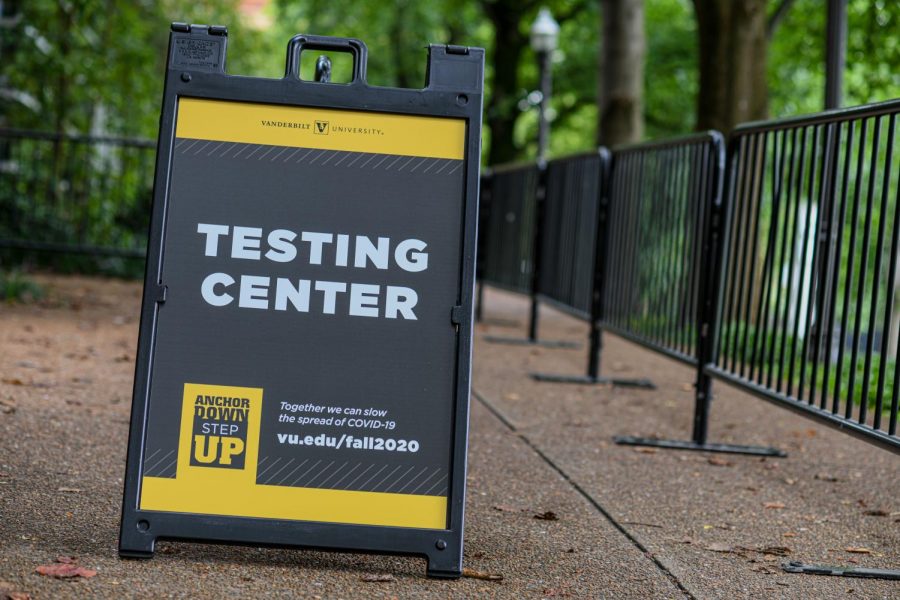A panel of Vanderbilt administrators, faculty and a student representative convened for the Spring Return to Campus Town Hall at 11 a.m. CST on Wednesday, Jan. 13.
Chancellor Daniel Diermeier first opened the town hall by commending members of the Vanderbilt community for their efforts and resilience throughout the Fall 2020 semester.
“[Fall 2020] was a challenging semester for students, for faculty, for staff and of course, for you parents on the call as well, but we are in as good a shape as we can hope for,” Diermeier said.
Provost Susan Wente then introduced Dr. Donald Brady, Senior Associate Dean for Health Sciences Education in the Vanderbilt School of Medicine, who spoke to the efficacy of the safety measures being taken on campus as well as the implications surrounding the ongoing COVID-19 vaccine rollout.
“[VUMC] is working to vaccinate its staff, its frontline workers, environmental services—everyone who’s at the medical center—including patient-facing students from the School of Nursing and the School of Medicine who are involved in clinical care,” Brady said. “We’re beginning to roll out vaccines to patients next week, and we’ll be working with the State Department of Health to continue that rollout.”
According to Brady, although the vaccine rollout is a sign of hope, there might not be a direct delivery of vaccines to the student population within the next one to two months. Brady said it will depend on production of the vaccine, distribution of the vaccines to states and distribution to sites where the vaccine can be administered.
The state of Tennessee continues its vaccination program, with a total of 271,575 reported vaccinations as of Jan. 11; Davidson County is currently in Phase 1a2 of the state’s vaccination plan. The Metro Nashville Public Health Department (MPHD) also introduced a “standby list” on Tuesday, Jan. 12 in an effort to reduce vaccine expiration and waste.
However, Brady added that regardless of students’ vaccination status, not enough is known about the available vaccines—including whether or not those who are vaccinated can still transmit COVID-19—to be able to disregard safety protocol involving face masks, physical distancing and gathering sizes.
Next, Dean of the School of Nursing Linda Norman explained that although Vanderbilt’s COVID-19 campus safety protocol remains largely unchanged from the previous semester, the gathering size limit has now been reduced to eight from ten, in accordance with Nashville metropolitan guidelines. Vanderbilt’s campus remains in Return to Campus Phase II+.
As for COVID-19 testing procedures for Spring 2021, Pam Jones, senior associate dean for clinical & community partnerships for the School of Nursing, reiterated the previously announced updates to the testing program. Changes to this semester’s testing program include twice-weekly testing as well as the elimination of pre-arrival testing for students.
“We’ve identified a vendor who has a much more rapid turnaround time,” Jones said. “The shorter the turnaround time, the more quickly you can get people out of the general population that need to be.”
The new vendor that Vanderbilt has identified for COVID-19 tests was not disclosed during the town hall. Students will, however, continue to take a saliva test as they did both over the summer and throughout the Fall 2020 semester with Vault Health.
The town hall then transitioned into discussing residential and academic life for students. This portion of the town hall was led by Puja Jagasia, Vanderbilt Student Government Academic Affairs committee chair.
Shaul Kelner, associate professor of sociology and Jewish studies, spoke to the importance of maintaining a limited in-person academic experience in order to help the community stay resilient and foster a sense of normalcy.
Dean of The Martha Rivers Ingram Commons Melissa Gresalfi also touched upon the topic of university-sponsored programming for students for the coming semester.
“The reality is that it is better to gather online than not to gather at all,” Gresalfi said. “As the university has released guidelines about online programming, we’re following those guidelines. As the guidelines change and open up, we will follow those guidelines and begin to gather in person.”
The latter half of the town hall was an open Q&A. During this time, Jones explained that students who receive the first of two doses of the vaccine in their home communities but arrive on campus before receiving the second will receive permission from the university to return home to receive the second dose.
“Or, [students] should perhaps stay home a little longer and come to campus after they’ve gotten that second dose because there’s just no way to ensure, with the priority structure that has been set by the state of Tennessee, that they will be prioritized in the same way they were in their home state,” Jones said.
If a student is unable to return home to receive the second dose of the vaccine, Brady encourages that they reach out to campus resources for student health.
According to Jones, as of now, there are no bodies currently recommending mandatory vaccination because the vaccine is still under an emergency use authorization.
“We will make every effort to educate people about the efficacy of the vaccine and the safety of the vaccine,” Jones said. “We really do encourage people to become vaccinated but it will not be mandatory.”
Gresalfi then spoke regarding student mental health and the reading days scheduled for Feb. 23-24 and April 7-8, which garnered a mixed response from the student body.
“We’ve already started to think about how we help students to manage their time so that those reading days can be legitimate breaks, and that comes before the reading days,” Gresalfi said.
Gresalfi emphasized the importance of students “building in their own breaks” into their schedules to allow for rest and recuperation as well as proper time management.
“Now speaking as a professor of teaching and learning, the idea that classes are the space that do harm to students—the space that creates stress for students—I think is not the right model,” Gresalfi said. “It certainly doesn’t reflect why a professor would choose to come to a university that has rigorous teaching obligations instead of research-only obligations. Of course, classes are stressful, assignments are stressful, getting grades are stressful, but faculty like getting to know their students.”
Julianne Vernon, Assistant Dean for Academic Programs for the School of Engineering, as well as Dr. André L. Churchwell, Vice Chancellor for Equity, Diversity and Inclusion, explained that remote and limited in-person programming sponsored by the Identity Centers will continue.
“There are a number of things still going on, carefully structured to ensure that they follow all the rules that have been outlined by Dean Norman and Dean Brady,” Churchwell said. “We still have to continue the social distancing, the masking and the like, but if there are issues that come up, we are certainly available to deal with that and we use the Black Cultural Center and other venues for those reasons.”
Vice Chancellor for Administration Eric Kopstain also announced that there will now be five tents, up from Fall 2020’s three, arranged across campus and will be utilized for outdoor dining, studying and even fitness programs. Each of these tents will be heated with hot water circulating from underneath the floorboards.
Finally, Kopstain spoke about the possibility of a portion of the Recreation & Wellness Center’s indoor facilities reopening to students at some point during the semester.
“We have also been working very closely with our colleagues in the Recreation Center to make portions of the Recreation Center indoor fitness areas available for our students starting in early February,” Kopstain said. “There will be more information coming on that in the near term.”

